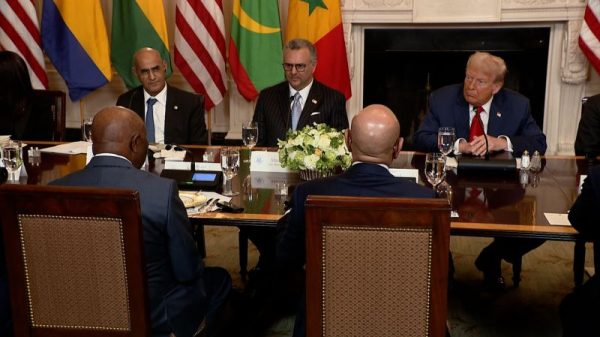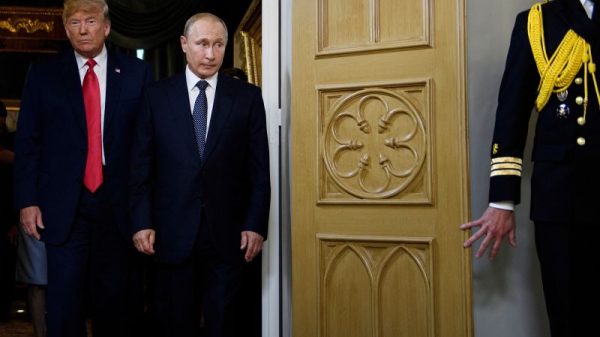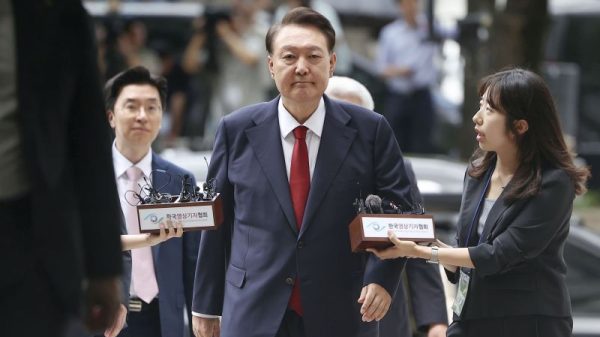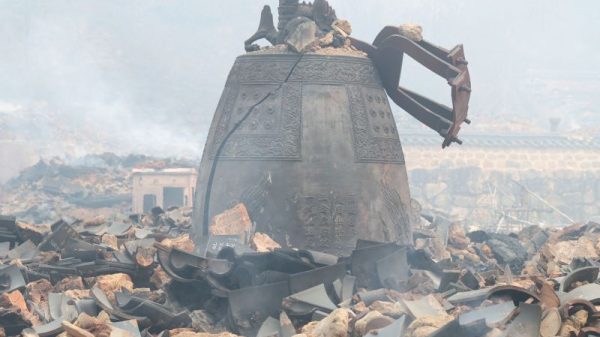As the election results roll in and America holds its breath, Chinese state media hasn’t missed the chance to accentuate US political polarization – and play up the threat of post-vote turmoil in its democratic superpower rival.
Beijing has long bristled at Washington’s criticism of its one-party authoritarian rule. Under leader Xi Jinping, who has cleared the way to rule for life, its mouthpieces have increasingly scoffed at the American political system and liberal democracy.
In a string of election day news reports and commentaries, state media has attempted to portray the vote as a reflection of deep social divisions and political dysfunction in the United States, amid broad sentiment in China that no matter who wins, tense bilateral ties are unlikely to improve.
“US Election Day voting begins amid fears of violence, unrest,” declared a headline in nationalist tabloid Global Times.
On state broadcaster CCTV, a reporter’s dispatch from Washington, DC focused on boarded up businesses, increased police patrols and metal fences erected around the White House and Capitol Hill to “prepare for the worst-case scenario of chaos,” while playing down the millions of people peacefully exercising their democratic rights.
“The US election, once considered a highlight of the so-called ‘beacon of democracy,’ may now become the starting gun of ‘social unrest,’” the state-run Beijing Daily claimed in a commentary on social media.
“The election feels like theater, filled with controversies. The root lies in the extreme polarization and division between the two parties, which has already created a sharply divided electorate.”
On Chinese social media, the US election featured high among the trending topics throughout Tuesday and Wednesday. On microblogging site Weibo, a popular quip goes: “The country is so divided, they might as well break into US-A and US-B.”
But for many Chinese watching the run-up to the vote, the focus was more on spectacle than substance – with a sense that no matter who wins, the tensions of the US-China relationship will remain.
Part of the reason for that may well be a consensus in China – from policymakers down to regular citizens – that the die is cast for a US administration that wants to constrain China’s rise on the global stage, regardless of whether Vice President Kamala Harris or former president Donald Trump wins.
Trump’s last term saw the Republican slap tariffs on hundreds of billions worth of Chinese goods, launch a campaign against Chinese telecoms giant Huawei and use racist language to describe the virus that causes Covid-19, which was first identified in China.
The past four years under President Joe Biden have seen a tone shift and effort to stabilize communication. But US concern about China’s threat to its national security has only deepened, with Biden targeting Chinese tech industries with investment and export controls, as well as tariffs.
Biden has also appeared to sidestep long-standing US policy in voicing support for Taiwan – a “red line” issue in the relationship for Beijing, which claims the self-ruling island democracy as its own.
“(It) doesn’t matter who it is (that wins),” one social media user wrote in a popular comment on Weibo. “Their containment of China won’t ease.”





























